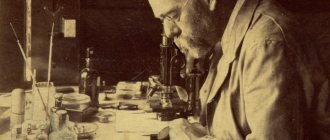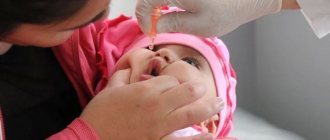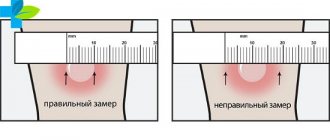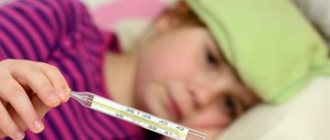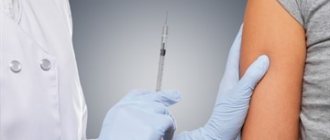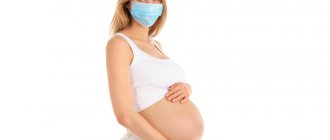Can people with antibodies get infected with coronavirus again, do they need to be vaccinated after the disease and how long will it protect? A molecular biologist, science journalist, and author of a book about coronavirus, “The Virus That Broke the Planet,” talks about this.
As the number of people who have recovered from Covid grows, and the coronavirus itself does not think of going anywhere, and sometimes even mutates quite strongly, more and more people are wondering whether they need and can be vaccinated against SARS-CoV-2, despite the previous infection . However, not only local therapists, but even leading specialists in the field of immunology and virology cannot answer this question unambiguously.
Because, firstly, we don’t have enough data yet, and secondly, the situation is changing very quickly, and what worked yesterday may not work the day after tomorrow. Nevertheless, there are some considerations in this regard.
Why do people who have been ill need vaccination at all?
Irina Yakutenko
Many respiratory diseases give unstable immunity - that is, after a few months, a person who has had a cold can become infected again with the same virus and will again sneeze, cough and lie down with a fever. Seasonal coronaviruses that cause colds in people—there are four of them known—can be caught twice a year.
What is the reason for such transience of cold immunity is not completely clear. The main hypothesis is that these diseases are based primarily in the upper respiratory tract, and local immunity deals with them. In an uncomplicated course, the systemic immune response is practically not involved, therefore, although those now well-known IgGs are formed, their number is small, and memory B cells, which carry instructions for the synthesis of antibodies, quickly disappear. The same applies to memory T cells, which, when they encounter a pathogen again, must activate special killer cells: during respiratory infections, only T cells living near the site of infection are activated, and after a few months they disappear without transferring their knowledge about pathogens to the systemic level.
Another possible reason for unstable immunity is a mild course. It is related to the previous one: in mild cases, the reaction of the immune system is limited to local means and/or the forces of innate immunity, and the memory of these battles in the form of instructions for creating specific immune weapons (antibodies and T-cells) is not preserved.
COVID-19 is a respiratory infection that is relatively mild and even asymptomatic for most people. This suggests that immunity to Covid may not be durable.
However, the available evidence does not allow us to unambiguously confirm or refute this assumption. In some studies, scientists see that the titer of antibodies, including neutralizing ones—that is, those that most effectively prevent infection of new cells—falls rapidly over time. Other studies have shown that neutralizing antibodies persist after illness for at least five months, and memory T cells for six months.
However, it seems that the number of antibodies is still decreasing quite quickly - and the speed of their disappearance depends on the severity of the disease: the more easily a person suffered from Covid, the faster his body will no longer remember this event.
How long after acute respiratory viral infection can you get a flu shot?
If there are symptoms of exacerbation of a chronic or acute disease, the injection of the drug is postponed. The duration depends on the degree of complication.
After an easy transfer, you can get the vaccine immediately after recovery. In case of moderate severity, you should wait 2-3 weeks. Severe respiratory illness - at least 4 weeks.
Before each injection procedure, a medical examination is performed. The patient is checked for the absence of flu and cold symptoms and external signs of other diseases. Temperature must be measured.
Have any repeated infections been recorded?
We have a number of reports of reinfections. It’s difficult to say exactly how many people contracted the coronavirus twice in less than a year, because re-infection can only be reliably confirmed when scientists decipher the RNA sequences of both the virus that caused the first disease and the virus that caused the second infection. Such data are available for only five patients.
Most people were diagnosed with Covid based only on a PCR test and/or clinical picture, and samples of their biological fluids from the time of the first infection were not preserved, so it will not be possible to decipher the genome of the first virus and compare it with the second.
In addition, of the five patients with confirmed reinfection, one was asymptomatic - coronavirus RNA was detected during a mandatory test at the airport. At the same time, the vast majority of asymptomatic people in the West, where testing has never been deployed to Chinese proportions, slip past the attention of doctors.
All these circumstances indirectly indicate that there may be more real “second movers”. Most likely, the majority of them will survive a new encounter with coronavirus easily or asymptomatically - but not all.
Of the five confirmed patients, a 46-year-old man from Ecuador was much more seriously ill the second time than the first, and an 89-year-old woman from the Netherlands died. And while the elderly lady suffered from cancer affecting the immune system, the Ecuadorian had no known chronic diseases. These data indicate that if reinfection becomes a widespread phenomenon, the number of Covid victims may increase further.
Vaccination will also not provide long-term protection, or will it not?
But if immunity after a coronavirus infection is unstable, then vaccination will also not provide long-term protection - this argument seems quite reasonable, and it is possible that this is so. We can only check exactly how long immunity lasts in vaccinated people by waiting.
But it is likely that protection after vaccination will last longer than after encountering a real virus. Because the coronavirus uses a lot of clever tricks to prevent the immune system from reacting properly.
At least nine SARS-CoV-2 genes encode proteins that somehow interfere with the course of the immune response. For example, nsp15 destroys double-stranded RNA fragments characteristic of viruses (they inevitably appear during the reading of information from the genomic RNA of the coronavirus). The cell recognizes such fragments and initiates an antiviral response.
And the nsp10 and nsp16 proteins attach special tags to SARS-CoV-2 RNA, which make them indistinguishable from cellular RNA. If there is no such mark on the RNA molecule, the cell recognizes it as viral and triggers protective reactions.
The protein synthesized from the ORF9b gene prevents the infected cell from synthesizing interferon - it stops protein synthesis both in the affected cell itself and in its neighbors. This measure kills the cell, but at the same time prevents the virus from building its components and assembling new particles from them.
These and other tricks prevent the cell from recognizing in time that a virus has entered it and starting to fight it, including by calling specialized immune system fighters for help. Therefore, during natural infection, protective reactions often begin later and do not develop according to the optimal scenario.
In the case when we introduce the body to viral fragments through vaccination, it reacts to foreign elements as expected, consistently deploying more and more serious lines of defense: first innate immunity, then adaptive - that is, the one that involves T- and B- cells. With a mild natural infection, defensive measures may be limited to innate immunity, which means that specific protection will not be created in case of a new encounter. In addition, when vaccinated, it happens in the muscle, and not in the respiratory tract, which, from the point of view of immunity, is a special zone that itself deals with its pathogens.
However, with the last argument things can be more complicated. Many experts believe that to effectively prevent infection, it is necessary to create protection in the respiratory tract.
However, the situation with vaccines that would be sprayed into the nose or throat to stimulate local immunity is poor: so far only one such flu vaccine has been registered, and the results of its use are not very impressive: traditional vaccines are often more effective. So, although the idea of local vaccines has prospects, there are still very few real practical developments in this direction.
What happens if you get vaccinated for a cold?
Most people abroad consider the norm for vaccination to be a fever (no higher than 38) and a runny nose. In Russia they try to avoid the manifestation of any disease. Especially with vaccinations that are difficult to accept and contribute to an increase in temperature, there is a double burden on the body.
It has been proven that it is not the injection that causes a deterioration in the general condition of the body, but concomitant infections, therefore it is not recommended to visit public places immediately after vaccinations in order to avoid infection and aggravation.
If you have a severe cold, there may be a complication, since the immune system is weakened due to the increased effect of the vaccine on the drug. Some doctors note a decrease in the effectiveness of vaccines given at the time of illness.
In mild cases of the disease, the antigen does not worsen the course of the disease, but high temperature is a contraindication. A runny nose without fever is an acceptable condition; with an individual approach and after determining the cause (for example, chronic rhinitis), the patient is allowed to undergo vaccination.
Should those who have been ill be vaccinated and when?
Thus, if a person had Covid many months ago, especially in a mild form, his body may forget how to fight this virus. In such a situation, the idea of reminding the immune system what to do - and at the same time giving it the opportunity to react according to all the rules this time - seems, at the very least, worthy of attention.
The American health regulator CDC advises those who have already had the disease to get vaccinated against coronavirus “due to the serious health risks associated with COVID-19 and the likelihood of reinfection.”
The authoritative American Mayo Clinic recommends getting vaccinated no earlier than 90 days after being diagnosed with coronavirus infection.
The gap between infection and vaccination is due to the fact that for three months the majority of those who have recovered from the disease retain a sufficiently high titer of antibodies, which provide protection against re-infection. On the other hand, vaccination during this period may turn out to be ineffective, since antibodies and other components of the immune system immediately neutralize coronavirus elements that have entered the body again, without giving them the opportunity to fully “prove themselves.”
After the concentration of antibodies - and possibly memory T cells - has subsided, administration of the vaccine antigen (viral component) will trigger the formation of a de novo
or almost
de novo
.
How long after the last injection can you get vaccinated?
Revaccination is a repeated vaccination to restore the body’s “memory” and additional production of antigens. Forms long-term protection.
The revaccination schedule according to the national calendar shows RV after a series of vaccines at least a year later. For polio, a second vaccine is given after 2 months, the rest at 6-7 years (measles, rubella, mumps, tuberculosis, diphtheria, tetanus), and then at 14 years (diphtheria, tetanus, polio).
Diphtheria
Tetanus
Whooping cough
For children who are often ill, the schedule will be different; the timing will be set by the pediatrician at the time of remission.
How safe is it?
It is impossible to say for sure how safe it is to administer a vaccine after an illness: there is too little data, but experts have no particular concerns about this, if only because vaccination after an illness is used for other diseases, for example, influenza. In this case, no side effects are observed.
During the third phase of clinical trials of the mRNA vaccine from the Pfizer/BioNTech concern, the drug was administered to 545 people who had previously suffered from COVID-19. No specific side effects were found in this group either.
It is not known how effective the vaccine is for people who have already been exposed to the virus. And this is rather good news: it means that these people did not stand out in any way from other trial participants and, for example, did not get sick with Covid more often than those who had not encountered it.
https://www.pravmir.ru/ya-perebolel-koronavirusom-mne-nado-delat-privivku/
